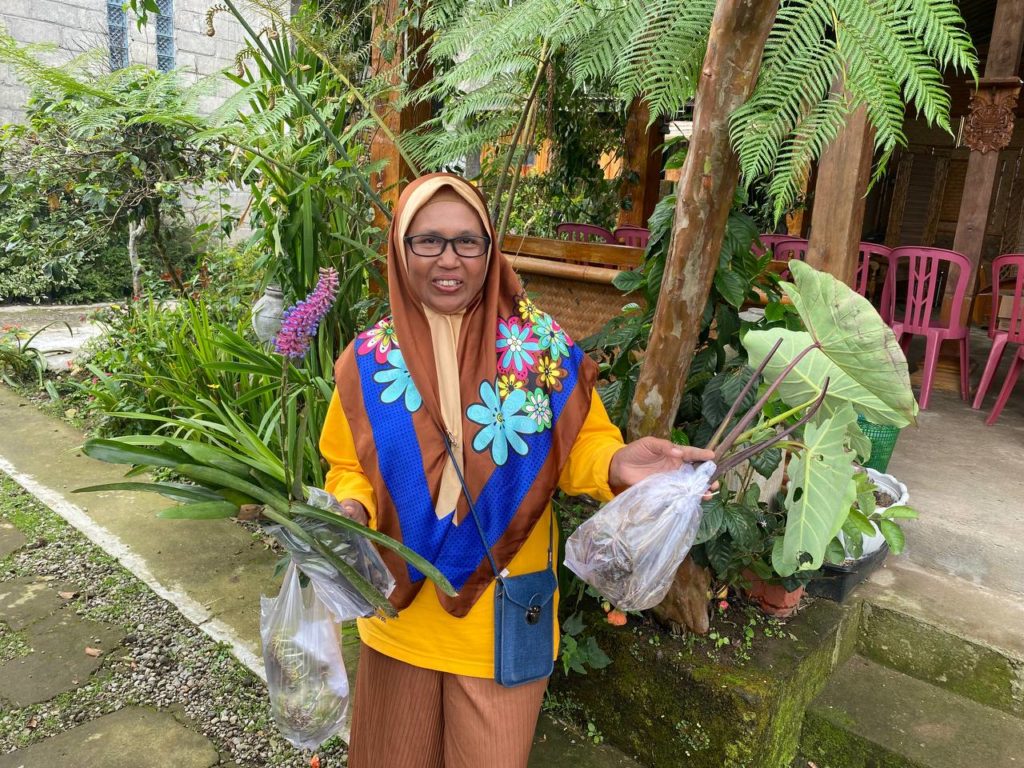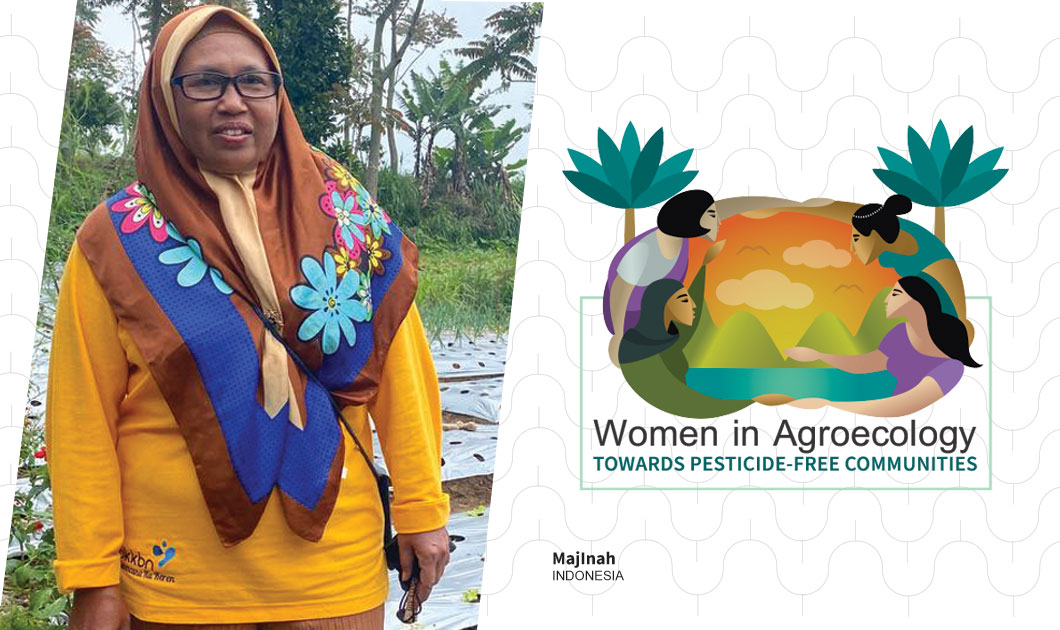Growing up in a rural village in Wonogiri, Central Java in Indonesia, Majinah was used to hearing about and experiencing for herself the negative impacts of pesticides—the “unpleasant smell” that reaches her when her neighbours spray pesticides, the nausea that her friends usually complain of after spraying. She also observed that soil fertility goes down through the years with the constant and ever-increasing use of chemicals.
So when she inherited a small piece of land and decided to go into farming full-time five years ago, she was convinced that it must be done sustainably and in harmony with nature. Majinah joined the Natural Sustainability Women’s Group (Kelompok Wanita Lestari Alam). Through the group, and several agroecology workshops led by Yayasan Gita Pertiwi, she became confident enough to break free from conventional practices.
Today, she grows paddy rice, vegetables, mustard, corn, tomato, and soy using mostly agroecological practices that she has learned collectively with other women. In their group, each woman has defined roles and contribute to farming responsibilities in various ways.

“The first thing I had to come up with were resources to transition to agroecology. I managed to overcome this by implementing the transition stage by stage. For example, I didn’t own the livestock needed in order to produce organic fertilizer. So I still used chemical fertilizers during the initial phase. But when I had enough income to buy ducks, I was then able to produce my own fertilizers without worrying about buying,” she said.
Majinah and the women in her group use available resources, such as banana leaves and neem, to produce natural pesticides. They also plant flower plants (e.g. marigold) around crops to repel pests. To maintain biodiversity and soil health, she implements a system of crop rotation.
She tries her best to prevent chemical contamination from nearby farms through various ways. Majinah uses the duck coop as a “buffer area” to reduce pesticide drift. She also uses dry bamboo leaves as an irrigation filter, to help in filtering pesticide-contaminated water.
“My current practice costs cheaper than when I had to buy inputs. Organic produce also fetches a different price compared to conventional produce, and brings more profit. My pesticide-free products attract many local people. I already have regular customers,” she said.

Majinah underscores the importance of ecological balance in her farm, including healthy livestock and other animals. This proves useful in pest management. For instance, even if there are rats, the presence of snakes reduces crop loss due to rat attacks.
Overall, she feels empowered as a woman who is able to make her own decisions on the farm, including on fertilizer production, seeds conservation, and managing farm resources. The lessons she learns makes her gain more knowledge, experience, and confidence to inspire others in her community.
Women In Agroecology: Towards Pesticide-Free Communities is a continuing storytelling initiative of PAN Asia Pacific and its partners to document stories of rural women who are survivors of pesticide poisoning and/or making the transition to agroecology.
Our contributing partners: Shikkha Shastha Unnayan Karzakram (SHISUK), Bangladesh; Society for Rural Education, India; Gita Pertiwi, Indonesia; Thanal Trust, India; PAN India; and Sustainable Agriculture and Environment Development Association (SAEDA), Laos








Discussion about this post